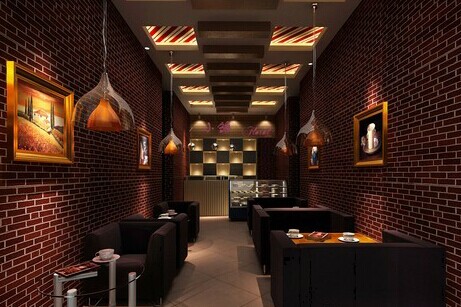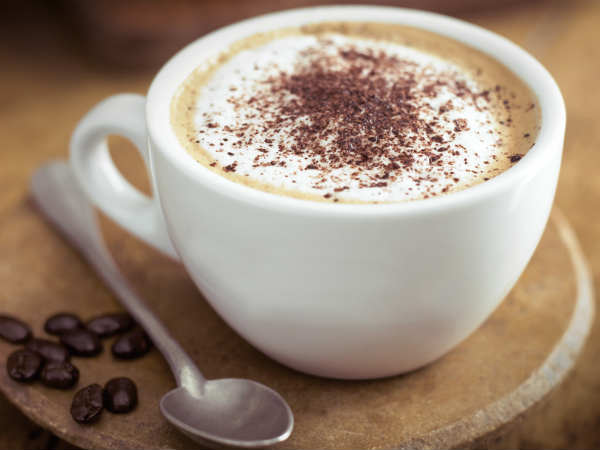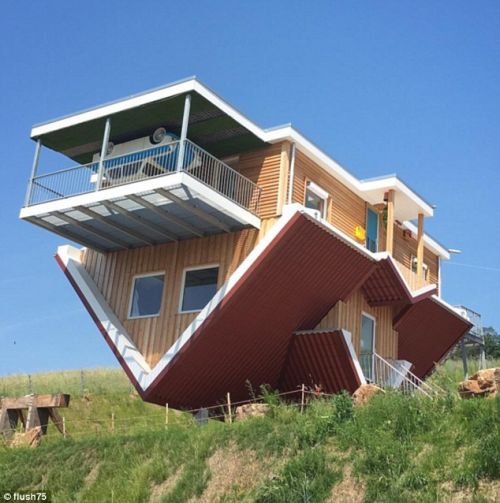Can cafes that stay up all night make a profit? Hangzhou Cafe aims at "Night Walkers"
Follow the caf é (Wechat official account vdailycom) and found that Beautiful Cafe opened a small shop of its own.
A 24-hour coffee shop with both ink and coffee aroma appeared on the youth road in Hangzhou. For Hangzhou, which has just entered summer, going to cafes all night on a long summer night can also become another choice for Hangzhou's refreshing "night walkers".
Xiao Chen, a freelancer, visits the "Beautiful Tree" cafe at night in the early hours of the morning. "for travelers who catch early flights and early high-speed trains, don't even spend money on accommodation," he said. It would be nice to go to a cafe with air conditioning, WiFi, coffee, meals, music and books. "
As the first 24-hour cafe in Hangzhou, many people were curious about it before it opened.

Travelers who settle down, young students, or sleepless white-collar workers. Since officially testing the waters for 24 hours on May 18, Shen Yi, the person in charge of the Yuetan Tree, was delighted to find that looking through the floor-to-ceiling glass, at 3: 00 or 4: 00 in the morning, more than a dozen guests were seated in a coffee shop with warm lights.
It is understood that on the first day of business, Yuetan Tree originally expected a turnover of only 500 yuan in one night. Unexpectedly, from 23:00 in the evening to more than 6 o'clock in the morning the next morning, the income of the coffee shop has exceeded 1000 yuan.
"in addition to serving light meals, desserts and coffee drinks, the breakfast break that the cafe did not involve very much, 615 / 30 / 10 / 30, was also taken advantage of." Shen Yi said that the "pleasure Tree", which is open full time, has also launched a 50% discount breakfast plan, and breakfasts such as Panini, Rafael rolls and bread have also become hot sellers in cafes.
The pleasure Tree is said to be a cafe, but its other identity is a bookstore that is open 24 hours a day. It is much easier to spend the long hours of the night with books, and a considerable number of bookworms sit in cafes for the quiet reading time of the night.
After nightfall, the cafe becomes a mini-bar
It seems that more and more people don't want to sleep in a long night.
It is not just "pleasure trees" that extend business hours. Many cafes that smell of coffee during the day often "can't sleep" at night. Many cafe owners introduce mini-bars and other business projects to create a late-night atmosphere and begin to think about how to make a good cocktail.
A cafe called HZ 9 on Yugu Road is preparing to build a "complex" of coffee and delicacies. Zhang Liu, the boss, said that during the day, the focus of the coffee shop is on coffee and western food. "in order to ensure the quality of coffee, coffee beans from San Francisco were specially selected." Recently, Zhang Liu admitted that he was also planning to stay open at 09:30 in the evening and invite a foreigner band to stay at the scene to create a quiet and leisure bar atmosphere for the cafe.
Similarly, UNCLE MATIN Coffee Western Restaurant, which will be unveiled on Dengqiao Road in the near future, is planned by the relevant person in charge that the business hours of UNCLE MATIN will continue until midnight. "because of the lounge, I think there are still articles to do." The person in charge, Mr. Sun, said in an interview with the media, "the business area is nearly 2000 square meters. I divided it into several areas, one for individual guests and lounge, one for VIP, and another area for small parties."
Homestead, a Korean cafe, is also well versed in "wine and coffee, cup after cup", opening the band's Pub mode after 9 p.m., and is open until 2 a.m. In addition to having a cup of coffee during the day, knowledgeable diners will also come to the scene to taste single malt whisky at night.

Can cafes that stay up all night make a profit?
"Hangzhou Cafe opens later and later, and its business hours are usually after two o'clock in the morning." In the view of Boeing, Secretary General of Hangzhou Coffee and Western Food Industry Association, the trend of cafes "open at night" has also been traced in recent years, and has gradually been recognized by many colleagues in Hangzhou cafes.
The emergence of cafes like these, which combine coffee, food and lounge Pub functions, has enriched the social needs of Hangzhou consumers and made it possible for cafes to extend their business hours, Boeing said. "in my experience, most customers in Hangzhou are not used to drinking coffee before going to bed, but they agree with having a cup of wine." Lou Boeing believes that this may be one of the reasons why many operators are busy absorbing other forms of business for cafes late at night.
However, for the "sleepless" coffee shop format of profit expectations, many cafe owners expressed concern, and even said bluntly that "it is difficult to make money." "after all, there won't be so many people at night, and there will be high 24-hour manpower, operation and other costs."
With regard to the extension of closing time until two o'clock in the morning, many cafes offer staff on duty a fixed hourly rate of 15 yuan per hour, plus an additional night allowance of 10 yuan per hour. In addition, in order to ensure normal ordering and matching, the cafe has to arrange at least two or three waiters every night.
In recent years, during a visit to Beijing, Shanghai, Guangzhou and other cities, Boeing has experienced the local 24-hour cafe. "first-tier cities are rich in nightlife, which is in line with the current market demand for cafes that are open all night or 24 hours a day."
It is reported that the number of new cafes in the main urban area of Hangzhou last year was about 70 to 80, but the number of closed or closed doors was also close to this number. "after the novelty is over, in the fierce market competition, whether the 24-hour cafes and 'late closing' cafes in Hangzhou can maintain long-term and stability is a great test for operators." Lou Boeing said.
Related readings:
How is the coffee market in China?
China's "economy has changed, and people increasingly understand different lifestyles." Richard Qian said, "they no longer see only tea."
Coffee consumption in China has nearly tripled in the past four years, ranking first of all the large markets it tracks, according to the USDA. The potential of the Chinese market is also huge: the country has a total population of 1.4 billion.
Starbucks is full of confidence in the Chinese market, so it plans to open its first international baking and experience center in Shanghai next year. The company believes that China will become its biggest market. The Seattle-based coffee chain already has more than 2000 stores in China and plans to add more in each of the next five years. Donndole, another US coffee chain, announced last year that it would add more than 1400 stores over the next 20 years, an increase of nearly a hundredfold.
The increase in coffee sales is a testament to China's transition to a consumption-driven economy, mainly due to changes in the willingness of the expanding middle class to spend, the report said. More and more Chinese are traveling abroad, some tasting espresso in Japan, and some finishing term papers in coffee shops in the United States. Unlike their parents, many of China's younger generation grew up surrounded by coffee shops.
"it happens to be at the sweet spot of casual household spending." Gao Zicheng, an investment professor at Peking University, said he was the co-author of "understanding Chinese consumers in an hour: five short stories to understand the brutal struggle of 1 billion consumers." To many Chinese, drinking coffee still seems like a hobby, but it is a luxurious way of life not far away.
In China's slowing economy, demand for other commodities is falling, but coffee seems to be an anomaly. The country's huge population base and almost untapped market offer unprecedented opportunities.
Chinese people drink an average of three cups of coffee per person per year, almost the lowest in the world, just above countries such as Sudan and North Korea, according to data provided by Ore International, a market research firm. By comparison, Americans drink an average of 363 cups of coffee a year, while Britons drink 250 cups of coffee.
Lei Xiaoshan, managing director of the China Market Research Group, said the Chinese craving for coffee has "completely changed the global supply chain." Coffee growers need to decide how to produce more beans for them in order to cater to Chinese tastes. "this has happened before, when the price of coffee beans soared as demand exceeded supply, and the situation was not alleviated until growers increased production."
The company estimates that coffee consumption in China will maintain a growth rate of about 20 per cent a year, a change that Mr Rein believes is largely due to women under the age of 30. "instead of buying Louis Vuitton bags, they turned their attention to experiential consumption." "Coffee culture is part of it," he said. "
Taste and cost pose a threat to China's burgeoning coffee market, especially outside urban areas with higher living standards, the report said.
"if you compare a coffee shop in China, especially a high-end coffee shop, with coffee shops in California and Boston, you will find that they sell less coffee every day." "it's not growing rapidly," said Peter Redosevic, a trader at Royal Coffee, a California coffee exporter.
For coffee to be truly successful in China, areas with fewer tourists must be convinced that coffee can supplement or even replace tea-especially for some unique coffee varieties, the report said.
The Wall Street Journal website has reported that demand for goods in China may be slowing as the economy slows, but coffee-even if expensive-is a rare bright spot in a country with a tradition of drinking tea. Analysts say demand for other luxury goods, including imported fresh fruit, is also growing rapidly, driven by changing tastes and a rapidly growing middle class.
Coffee represents "a Western way of life that is attractive to the upper class and middle class in cities" compared to tea, which is seen as a more traditional drink, according to Lafayette, a food and beverage analyst at BMI Research.
Taiwan's Zhongshi Electronic News once reported that some coffee experts said that if the mainland drank 20 cups per person per year, the world coffee price would rise threefold, which shows the great influence of the mainland on global coffee.
Generally speaking, in the eyes of foreign media, although the amount of coffee per capita in China is still small, the Chinese coffee market still has great potential.
Important Notice :
前街咖啡 FrontStreet Coffee has moved to new addredd:
FrontStreet Coffee Address: 315,Donghua East Road,GuangZhou
Tel:020 38364473
- Prev

A roadside coffee shop in Germany uses the art of "handstand" to turn everything upside down.
A roadside cafe in the small town of Waterheim in Germany uses the art of handstand to turn everything upside down, allowing customers to see the world from a new point of view. When you first enter this coffee shop, you are likely to feel dizzy. From the outside, the whole house looks down and feet up, and the car staggers to the top of the building. Go into the store, all
- Next

Novice coffee shop location skills, open coffee shop knowledge
Compared with traditional catering, investing in coffee shops is a promising project. Li Ka-shing, the richest Chinese, once said in summing up his real estate investment secrets: lots, lots or lots. The success of investing in coffee shops is also closely related to site selection. Where to open a store and what kind of store to open directly affects business performance. Commercial Wang Street became a cafe
Related
- What documents do you need to go through to open a coffee shop? coffee shop coffee shop certificate processing process
- How to purchase Coffee beans in small Cafe how to choose a suitable supplier for domestic Coffee supply Company
- How to drink Starbucks Fragrance White Coffee? how to make Australian White Coffee? what Italian coffee beans are recommended?
- The Story of Flora Coffee: the name of Flora Coffee Bean and the implication of the Flowers on Florna Coffee
- How much does a cup of coffee cost? How much is the profit of a cup of coffee? What is the profit of the coffee shop in a year?
- Yunnan small Coffee, known as "fragrant Coffee", introduces the characteristics of Alpine Arabica Coffee producing areas in Yunnan, China
- 2023 latest Starbucks full menu price list how much is a cup of Starbucks coffee what is better to drink the most popular hot and cold drinks recommended
- Starbucks different kinds of Coffee Price list Starbucks menu 2023 Top Ten Best drinks in Starbucks
- Starbucks Spring praise Comprehensive matching Coffee Bean theme Story Packaging implication and taste description
- The cost of a cup of coffee latte American coffee cost price and selling price

